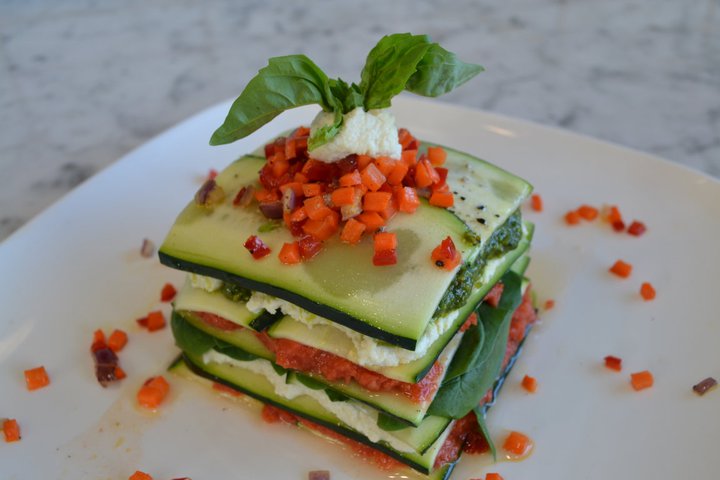
The Power of Raw - by Jennifer M. Robertson
As health and well-being, ‘Meatless Mondays’ and concern for environmental sustainability gain mainstream popularity, ‘raw’ or ‘living’ food – food not heated to temperatures above 46ºC – promises to deliver taste while being both people and planet-friendly.
What is raw food?
Raw cuisine describes the use of plant-based nutrition sources, including fruits, vegetables, grains, nuts and seeds, to create innovative and healthy dishes. These meals retain, and most often far exceed, cooked varieties in taste, texture, appearance and most of all, nutritional value. Raw and living food is typically minimally processed, free from ingredients derived from animal products, and not heated to high temperatures at any point during collection or production. There are numerous reasons that someone might want to introduce raw foods into their daily diet:
- issues of health and well-being,
- a love and compassion for animals,
- the philosophy of ahimsa (non-harming),
- concern over environmental and pharmaceutical contaminants in our food supplies,
- fasting for spiritual or religious purposes,
- and reducing one’s overall environmental footprint.
What are the health benefits of eating raw food?
Incorporating raw food into your current diet offers a vast array of nutritional and health benefits. For example, most vitamins, minerals and enzymes are retained to a higher degree in unheated food when compared to cooked foods. This makes raw food dishes generally more nutrient-dense – an exception to this would be licopein in tomatoes, for example. In addition, the absence of heating at high temperatures eliminates concern over carcinogens resulting from grilling and/or cooking in oil (e.g., barbequing, frying). Fiber naturally found in produce remains intact when left in a whole-food form.
Generally, raw food diets are much more alkaline and less acidic than standard cooked food diets. This is of interest, as reducing overall body acidity has been shown to have an important link in the reduction of cancer growth and the progression of other diseases, including osteoporosis.
Raw food, in its current mainstream movement, is also beneficial to human health for the things that it typically does not include. This is particularly notable when compared to the factory-processed and packaged foods, which are an accepted part of many people’s diets in our modern, fast-paced world. By default, raw and living food dishes exclude artificial chemicals such as colorants, flavorings and preservatives, as well as animal flesh and dairy products, which are problematic for many people to digest, particularly those of Asian heritage.
Sugars and sweeteners used in raw food preparation are natural and plant-derived (e.g., palm sugar), with a lower glycemic index when compared to chemical and refined sugars. They are usually kept to a minimum, or at least greatly reduced when compared to the amount used in standard cooked foods, especially desserts.
What opportunities are available to learn more?
Based in Bangkok, Jennifer M. Robertson currently offers monthly raw culinary classes instructing in the preparation of dishes as simple as salads and as complex as artfully garnished gâteaux made with fermented nut cheese and flower essences. Jennifer and her company, De-hydrated, believe that enjoying fresh, delicious, living food – free from artificial additives, gluten, and animal products is an innovative means of promoting and supporting both maximum personal health and environmental sustainability.
 For more details, and for simple yet delicious raw food recipes, please visit www.de-hydrated.com
For more details, and for simple yet delicious raw food recipes, please visit www.de-hydrated.com
